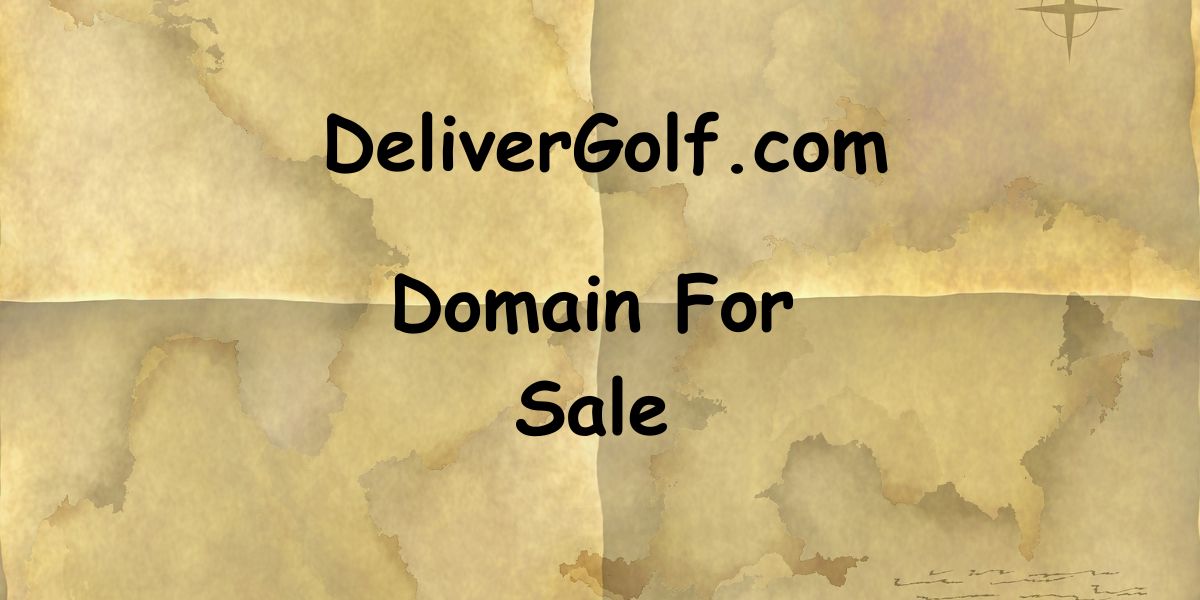Have you ever felt the thrill of unearthing a treasure? That’s what buying and selling internet domains feels like. A digital gold rush, where fortunes can be made with the correct name. But here’s the twist: it’s not about luck; it’s strategy.
You heard me right. Imagine snagging business.com for a song in ’99, then flipping it years later for millions. Sounds far-fetched? It happened. This world is real, pulsating with potential at every click.
The secret sauce? Knowing when to hold ‘em, fold ‘em, and walk away…with pockets heavier than you came. Everyone wants in, from domain flippers who’ve turned this into their jackpot machine to small businesses hunting that perfect URL.
Table Of Contents:
- Introduction to Buying and Selling Domain Names
- The Art of Domain Flipping for Profit
- Building a Profitable Domain Portfolio
- Navigating the Domain Marketplace
- Essential Tools for Domain Traders
- Setting the Right Price for Your Domains
- The Role of a Domain Broker in Selling Premium Domains
- Legal Considerations in the Domain Trade
- Success Stories in the World of Domains
- Future Trends in the Domain Industry
- Conclusion
Introduction to Buying and Selling Domain Names
Understanding the Basics of Domain Trading
The world of domain trading might seem like a hidden treasure trove, where stories abound of $8 domains flipping for millions. But let’s get real; it’s not just about luck. Navigating the domain market requires clever tactics, keen observation, and impeccable timing.
Buying a domain is your first step into this thrilling market. Remember the early days when snagging a .com or .net felt like striking gold? Those who jumped in are now sitting pretty. That could be you with the next wave of domain names.
The Importance of Domain Names in Today’s Digital Age
A killer domain name can skyrocket businesses online—no wonder companies shell out big bucks for that perfect web address.
In today’s digital age, having the right domain name isn’t just an option; it’s essential. Think about it: we live our lives online, from shopping to socializing to learning new skills on YouTube tutorials at 3 AM (we’ve all been there). Your domain is more than an address—it’s your digital identity.
- Sell domains?: You’re essentially dealing in prime virtual real estate, but remember, while some may sell fast and high, others take time to find their ideal match.
- To buy domains?: Dive deep into research before taking the plunge—check trademarks via the United States Patent and Trademark Office (USPTO database check here.) because no one wants legal drama over a URL mix-up.
- If you’re eyeing profit-making through buying and selling URLs or perhaps dabbling in expired domains’ market – welcome. There are endless opportunities if you play your cards right.
Embarking on this journey, you’ll ride the rollercoaster of triumphs and setbacks—brace yourself for an exhilarating escapade. Now go ahead and start researching those catchy business names because who knows? The following premium URL making headlines might just be yours.
Key Takeaway:
Dive into domain trading with strategy, not just luck. Snagging the right .com can be like striking gold, making you sit pretty in today’s digital age, where a killer domain is your key to skyrocketing online. Remember, it’s all about research and timing—whether buying or selling, each domain is prime virtual real estate waiting for its perfect match.
The Art of Domain Flipping for Profit
What Is Domain Flipping?
Imagine stumbling upon a hidden gem at a yard sale, buying it for pennies, and then discovering it’s worth thousands. That’s domain flipping in the digital world. It’s about spotting those undervalued web addresses, investing in them, and then selling them to the highest bidder or someone who sees their true potential.
This is far from mere technological sleight of hand or serendipity—it’s a craft that weaves together gut feelings and tactical planning. Think of it as real estate investment but on the internet. Instead of houses or apartments, you’re dealing with domain names. And yes, some have sold for eye-watering amounts.
Strategies for Successful Domain Flipping
- Niche Down: Focus on domains within specific industries or interests. Whether it’s emerging technologies or evergreen topics like fitness and health—the more specialized your niche is; the better.
- Trend Watch: Use Google Trends and Keyword Planner to find trending keywords. This can help predict which domain names might become hot properties in the future.
- Pricing It Right: Setting the right price is crucial. It’s not too high that it scares off buyers but not so low that you sell yourself short. Research comparable sales to find that sweet spot.
- The Long Game: Sometimes patience pays off—literally. Holding onto a domain until its value increases can result in significant profits.
Above all else? Flexibility is key—a successful flipper knows when to hold ’em and when to fold ’em (or sell ‘’em.). But remember: while flipping domains can be profitable (business.com was sold for $350 million.), success doesn’t happen overnight. Mastering the art of domain flipping isn’t just about snapping your fingers – it’s a game that demands commitment, thorough investigation, and, occasionally, fortune smiles upon you. So roll up your sleeves; let’s dive into this dynamic market together.
Key Takeaway:
Domain flipping is like treasure hunting online—spot undervalued domains, invest wisely, and sell for a profit. It’s an art that mixes strategy with patience. Success means staying flexible, spotting trends, pricing smartly, and sometimes playing the long game.
Building a Profitable Domain Portfolio
Selecting the Right Domains to Invest In
Let’s face it: diving into domain investments is like stepping into a vast ocean. Crafting a winning game plan and trusting your gut are essential. It starts with selecting suitable domains—those hidden gems that promise future gains.
Finding quality domains isn’t just about luck; it’s an art form. First off, check for copyrights and trademarks. This step is crucial. The last thing you want is legal trouble because your chosen domain infringes on someone else’s intellectual property.
- Focus on niche markets or industries you’re familiar with – this gives you an edge.
- Leverage tools like Google Trends or Keyword Planner to spot trending topics that could translate into valuable domain names.
- Avoid overly long or complex names; simplicity wins every time.
Managing Your Domain Investments
The journey doesn’t end after acquisition; effective management of your portfolio plays a pivotal role in its success.
- Maintain Organization: Keep detailed records of each purchase, including price and date acquired. Programs such as Excel facilitate the neat organization of your records.
“Most domains end up paying for themselves so your portfolio won’t really cost you any money out of pocket.”
You might wonder how? Well, monetization through ads or affiliate marketing can cover renewal fees while waiting for the big sale. Remember to focus on areas you know well. You’ll be much more successful than venturing into unknown territory without a map. Here’s why expertise matters when flipping domains,.
- Sell Strategically: Your goal should be selling at peak value—this requires patience and timing. Gauge market demand before listing, auctioning, or making direct offers to prospective buyers. Use platforms tailored for such transactions, like Sedo or GoDaddy Auctions. Stay informed about current trends; they often dictate buyer interest levels.
Key Takeaway:
Dive into domain investing with a plan. Check for legal issues, focus on familiar niches, and use tools to find trending names. Manage your portfolio well by keeping organized records and monetizing domains smartly to cover costs. Sell when the time’s right by understanding market demand.
Navigating the Domain Marketplace
Where to Buy and Sell Domains
Diving into the domain market can feel like stepping into a bustling city for the first time. It’s vibrant, packed with opportunities, but also a bit overwhelming if you don’t know where to look. But here’s your map.
Imagine domains as real estate in the digital world. Just like in real life, location (or, in this case, name) matters. And specific places – or platforms – are designed just for buying and selling this valuable property.
Popular Platforms for Domain Trading
Sedo: Think of Sedo as that high-end marketplace where premium domains find their match. It’s global, active 24/7, and it caters to all levels of domain traders.
Flippa: Flippa is more than just domains; it’s an entrepreneur’s playground. But when it comes to domains, they offer a unique auction style that keeps things exciting.
Namecheap Marketplace: Here, we have a straightforward platform perfect for beginners yet robust enough for seasoned investors looking to buy or sell quickly without much fuss.
- Sedo
- Auction site Flippa
- Namecheap Marketplace
We’re not done yet. There’s GoDaddy Auctions, a giant among giants in the domain world. It’s akin to walking through Times Square; everything feels larger than life, with endless possibilities swirling around you.
So there you have it—a quick tour of some top web spots where dreams of owning that perfect domain might become reality.
Essential Tools for Domain Traders
Using Keyword Research Tools
You’ve heard it before, but let me repeat it: Keywords are the bread and butter of domain trading. Why? because they’re your golden ticket to understanding what’s hot and what’s not in the vast online world.
First off, Google’s Keyword Planner. It’s like having a crystal ball that shows you which keywords people are searching for. This tool doesn’t just give you numbers; it gives you insights.
- It lets you peek into search volumes.
- Gives a rough estimate of competition levels.
- It tells you how much those clicks might cost if you used them for ads.
This is crucial when picking domains because knowing what terms folks are after can help guide your buying strategy. And here’s a pro tip: Look beyond the obvious, high-competition words. Dig deeper into niche terms with decent search volume but less competition—these gems can be gold mines.
Leveraging Trends in Domain Selection
Catching trends early on is akin to striking oil in your backyard – unexpectedly lucrative. But how do we spot these trends? Enter Google Trends.
With this clever gadget, we can monitor the ebb and flow of search inquiries worldwide, peering into their prevalence across different areas and tongues. Do you see where I’m going with this? If there’s an uptick in interest around specific topics or industries, that could signal an opportunity to snatch up related domain names before they become hot property.
- To use Google Trends effectively:
- Type in potential industry buzzwords or emerging tech phrases and watch their trajectory over recent months or years.
- If you notice steady growth patterns or sudden spikes due to events or breakthroughs within that sector, pivot quickly by securing relevant domain names.
The trick isn’t just about getting there first; it’s about being intelligent and strategic with the data at hand—combining keyword research savvy with trend analysis prowess puts power behind every move on the chessboard of domain trading. And remember, “fortune favors the prepared mind,” as Louis Pasteur once said (though he probably wasn’t talking about domains). So get out there armed with these tools – check domain availability based on solid research, and stay ahead of curveballs by leveraging current trends through Google Trends. Ensure you maintain an edge in this endeavor by leveraging every accessible tool to guide your choices wisely.
Key Takeaway:
Master domain trading using Google’s Keyword Planner to uncover what people search for and Google Trends to spot rising topics. Dive into niche keywords with less competition for hidden gems, and stay ahead by tracking trends closely. Be intelligent, strategic, and prepared to win in the domain game.
Setting the Right Price for Your Domains
How to Appraise Your Domains
Finding the perfect price for your domain can feel like trying to catch smoke with your bare hands. But it doesn’t have to be. The first step is to get a good grip on your domain’s actual worth.
There’s a whole toolbox at your fingertips, ready to be unlocked. Use domain appraisal services, check out similar domain sales, or even use some of those SEO tools that show keyword popularity. They can give you an idea about demand, which directly translates into value.
Pricing Strategies for Sellers
Now, let’s talk strategy because setting a price isn’t as simple as sticking a number on a tag and calling it a day.
- Fixed Price: You know what you want and aren’t willing to budge? Set a fixed price. It tells potential buyers what I believe my domain’s worth: take it or leave it.
- Auction: Got something special? An auction might be the way to go. Let buyers duke it out until the highest bidder takes all – often leading to better-than-expected payouts.
- Negotiate: If flexibility is more your style, then negotiate away. Remember, if they throw in an offer that feels too lowball, breathe deeply before responding.
In all these cases, familiarizing yourself with past sales data matters big time, as does knowing when someone’s offering you an offer that’s too good not to snag up immediately. Kaching.
Selling domains isn’t rocket science but selling them at a good deal?. That requires thoughtfulness paired with innovative strategies sprinkled over everything else we talked about today. So dive in; profits are waiting on the other side of savvy pricing decisions.
Key Takeaway:
Master the art of domain pricing with intelligent strategies. Dive into appraisal tools, pick a pricing approach that suits you best, and use past sales data to guide your decisions. There’s profit in savvy pricing.
The Role of a Domain Broker in Selling Premium Domains
When to Consider Hiring a Broker
Let’s get real for a second. The digital world is like the Wild West, especially when you’re trying to sell high-profile domain names. It’s not just about slapping a “For Sale” sign on your premium internet real estate and waiting for buyers to knock. This is where stepping up your game with a domain broker comes into play.
If you’ve reached the point where Google searches leave you more confused than enlightened or if negotiations feel like deciphering an ancient language, it might be time. And let’s not forget about those moments when legal jargon seems designed to trip you up—that’s your cue right there.
Benefits of Working with a Broker
- Achieving top dollar: Who doesn’t want the best price for their domain? Brokers have their fingers on the pulse of market trends, ensuring you don’t settle for less.
- Negotiation champions: They talk so well that they could sell ice in Antarctica. Your broker will handle all those back-and-forth emails and calls, ensuring potential buyers see the value in what they’re getting.
- Fraud protection: Scammers are everywhere, but fear not. A good broker acts as your cybersecurity guard against any fishy deals.
- Saving precious time: Your time matters. Let brokers do what they do best so that you can focus on…well, anything else.
Working with domain brokers takes much weight from sellers’ shoulders—handling negotiations, protecting against scams, and fetching premium prices. It feels like a spell has been cast when these experts effortlessly simplify the intricate selling process. So before diving headfirst into selling that valuable domain name solo, consider bringing an expert aboard. Your sanity (and wallet) may thank you later.
Key Takeaway:
Don’t go alone selling premium domains; domain brokers are your secret weapon. They snag top dollar, battle in negotiations, shield you from scams, and save you heaps of time.
Legal Considerations in the Domain Trade
Avoiding Trademark Infringement
Navigating the domain trade can feel like walking through a minefield blindfolded if you’re not careful about trademark issues. Here’s the thing: You don’t want to step on someone else’s intellectual property because, oh boy, it can get messy.
To avoid trouble, ensure a business doesn’t already take your dream domain with legal rights over that name. Think of trademarks as “reserved parking” signs; just because you can park there doesn’t mean you should. Before falling head over heels for a domain name, do yourself a favor and check out the United States Patent and Trademark Office (USPTO). Dodging potential legal battles in the future might be a breeze with this simple step.
Understanding Copyright Laws
Navigating the complexities of copyright laws is essential during domain transactions, akin to uncovering hidden clauses we often overlook yet carry significant repercussions if disregarded. They’re like those hidden terms and conditions we never read but agree to anyway—except these come with real consequences if ignored.
Your mission? Make sure your chosen domain doesn’t include copyrighted material without permission. Imagine finding out your purchased domain is akin to sitting on someone else’s couch without asking—it’s uncomfortable for everyone involved. A quick search on copyright databases might be all it takes to ensure everything is above board.
In this world of clicks and URLs, being informed means staying ahead—and out of courtrooms. Remember, folks, knowledge is power, especially when dealing with trademark issues and copyright laws in the ever-evolving digital real estate landscape.
Success Stories in the World of Domains
Notable Sales and Their Impact on the Market
Have you heard of business.com? It was sold for a whopping $350 million. Yes, you read that right. We’re talking about a transaction that’s more than impressive—it’s the kind of staggering event in the realm of domain sales that causes folks to stop dead in their tracks and reconsider their game plans.
This story isn’t unique, though. Countless stories abound of astute traders flipping humble acquisitions into monumental gains, thereby revolutionizing the market landscape. These sales don’t just fill pockets; they set benchmarks, pushing the ceiling higher for what domains can fetch on a good day.
Lessons from Successful Sellers
You might think these success stories are all about luck—being at the right place at the right time with the right domain name. But there’s more to it than cosmic coincidence.
- A keen eye: The top sellers always have an eagle eye for trending keywords or emerging industries.
- Persistence pays: Some domains sit idle for years before finding their golden buyer willing to pay top dollar.
- The price dance: It’s not just about slapping a high price tag on your domain; understanding when to hold firm and when to negotiate can make all the difference between profit and loss.
The takeaway? While buying up tons of domains seems like an easy way to make money, real-world results show it’s not that simple. Like any business venture, risk is involved, but there is also potential reward if you play your cards smartly. Remember: behind every successful sale is someone who dared to dream big and did their homework meticulously.
Future Trends in the Domain Industry
Predictions on Emerging Extensions
The domain world is like a vast ocean, constantly shifting with new currents. New generic top-level domains (New gTLDs) are the waves making headlines. Imagine having .app, .tech, or even .blog at the end of your website address. Cool, right? It’s not merely about being fashionable; it’s about crafting a distinct niche for yourself in the vast expanse of the internet.
These fresh extensions open up realms of possibilities for branding and marketing. Imagine you’re rolling out an innovative AI platform. A “.ai” extension doesn’t just say you’re part of tech’s elite—it screams innovation.
The Influence of Technology on Future Valuations
Now let’s talk tech—specifically machine learning. Machine learning is revolutionizing the entire landscape of domain valuation, altering our traditional approaches.
Gone are the days when valuing a domain was more art than science. Machine learning can now crunch numbers and trends to spit out precise valuations faster than ever.
- Niche Domains: Have you ever heard of niche domains? Nestled within the digital expanse, these unique treasures serve distinct sectors or hobbies, and their worth is surging as tech outpaces human insight in grasping market needs.
- Better Predictions: With algorithms analyzing every nook and cranny of internet behavior patterns, predicting which domain names will hit big has become less guesswork and more foresight.
This evolution means one thing: savvy investors have golden opportunities but must stay sharp as swords because what’s valuable today could be tomorrow’s digital relic. Are you ready to dive into this fast-evolving industry?
Conclusion
So, we’ve danced through the digital gold rush of buying and selling internet domains, a journey not just for the tech-savvy but for anyone armed with strategy and a dash of daring. It’s not merely about having a keen eye for catchy names; it’s about understanding market dynamics, spotting trends before they explode, and sometimes, holding your breath as you click “buy.”
Venturing into this realm transcends mere chance; it’s a calculated blend of foresight and strategy. It’s more akin to chess – thinking several moves ahead with patience and precision. The domain world is vast, filled with tales of overnight millionaires and those who play the long game, nurturing their digital assets until they bloom.
We’ve unwrapped secrets that seasoned flippers use to turn URLs into ROI – showing that success in this arena demands more than hope; it requires insight. From harnessing tools that spy out future trends to decoding what makes a domain go from meh to money-making magic – it’s all part of this intricate dance.
In essence? Buying and selling internet domains might be one of today’s most underrated side hustles or full-blown careers—depending on how deep you’re willing to dive (without actually using “dive,” remember?). But let’s get real: every keystroke can pave another brick on your path to financial freedom…or serve as a learning curve in this high-stakes domain name game.
You’ve now got the map treasure hunters would envy—the X marks knowledge hard-earned yet freely shared here. Whether it’s for a personal project or professional growth, this resource is your guide to quickly navigating through complexities. So dive in, explore each corner, and let the wealth of information empower your journey.






